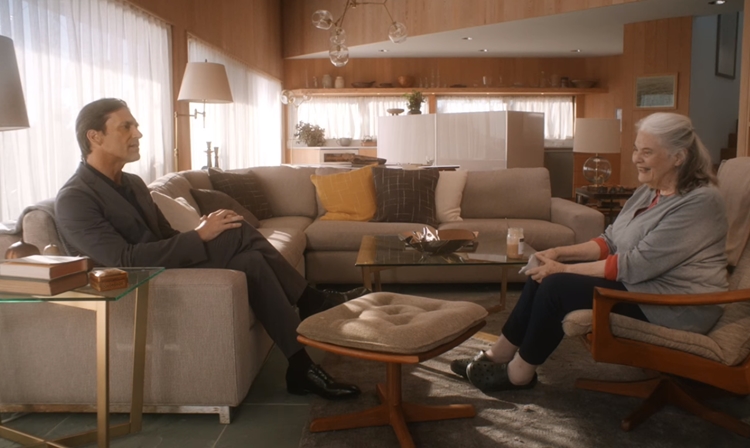Your Racist Friend | Fighting against our own implicit biases
In 1990, the band They Might Be Giants put out the album Flood, which featured a song called “Your Racist Friend”. I liked the song, but to my naive and sheltered 17-year old self, the idea of socializing with anyone labeled “racist” was nearly impossible to imagine.
When I was growing up—not THAT long ago, in the 1980s and early 1990s—the word “racist” was reserved for only the worst offenders, David Duke and Ku Klux Klan members, skinheads, and other remnants of Nazi ideology.
The word “racist” pops up a lot these days, in many different contexts, and it seems strange that such a loaded word should suddenly prove so popular. A quick check of Google Trends confirms that the proportion of web searches using “racist” is roughly double that of 2004, the furthest back that data goes. The data dips and dives occasionally, but “racist” has been steadily trending higher, especially since 2012.
That search, and this essay, was prompted by a somewhat obscure but very good movie called Marjorie Prime, which takes place in the not-too-distant future. There’s a scene in which a middle-aged woman tells her mother that she’s considering getting a dog—a Shiba Inu.
“It’s, like, the national dog of Japan. Very clean. Very quiet. Very shy.”
The mother replies, “Well, what do you expect?”
“You… you mean?” the daughter sputters.
Mom finishes her thought: “It’s Japan. It’s not racist, it’s a compliment. I’m not racist. Your poor old mother was born in the 20th century. You’ll have to give her time to catch up.”
I paused the movie, turned to my wife to provide unsolicited non-“DVD extra” commentary, and said, “I don’t think that’s racist.” I then offered my opinion on the differences (and admittedly, the slippery slope) between generalizations, stereotypes, prejudice, and racism. The problem is that—forget racism—even generalization and stereotype have become loaded words.
When our current, communicationally-challenged president made his infamous comments comparing Port-au-Prince to a Port-O-Potty, he was probably guilty of generalizing, and maybe even stereotyping. Avoid absolutes, always. (That’s a joke, but not really.) Still, to my mind, calling him a racist is going too far. Dubbing someone a racist is an extreme measure, akin to calling someone evil, and a far cry from the muddy reality in most cases.
Overuse of the word “racist” both waters down its meaning and shuts down open conversation with people who feel they’ve been personally attacked.
It’s not always easy to identify whether something is racist, or why. The difference between saying “Italian-Americans love pasta” and “African-Americans love fried chicken and watermelon” is complicated, all context and history and intent.

I considered the “clean, shy, quiet” comment again, wondering whether the leap to calling it racism depended on the perception of “clean, shy, and quiet ” as negatives. But some people argue that attributing even positive characteristics—Asians being good at math or music, for example—is racism. These would seem to argue against the “negative characteristic” interpretation, though there are many dirty, loud, and talkative Americans who would disagree.
If you feel that something is offensive, it could be personally offensive to you, or you might just be generalizing in saying that it’s offensive to all people. It’s all very confusing.
And if you are confused, hold on, it gets worse; you might be racially biased and not even know it. Many years ago, a friend introduced me to an online test (through Harvard University, not Facebook) that measures implicit, or automatic, bias. After 5 minutes, the test observed that I “strongly prefer whites” over blacks.
I was a bit humbled, but it sort of made sense—I grew up around very few people who weren’t of Italian or Irish descent, so darker skin probably seemed more “different” to me than to my friend, who grew up in more racially diverse areas and showed no bias whatsoever.
I revisited the website, Project Implicit, curious how I’d fare today. It turns out my “strong” preference for whites has eased to a “moderate automatic preference for European Americans over African Americans”.
Project Implicit has introduced other tests as well, and it seems I harbor automatic preferences for light skin over dark, and other people over Arab Muslims. European Americans were more “American” to me than Asian Americans. I also associated White European Americans as “American” and Native Americans as “foreign” (ironic, no?).
I showed no bias or automatic preference between old people and young people, possibly explained by the fact that I’m increasingly categorized in the former group, but like to convince myself I’m still included in the latter.
It was somewhat gratifying to see that at least I wasn’t the only one with implicit bias: after years of administering the “race” test, Harvard now includes a note that “[..] most Americans have an automatic preference for white over black.”
Does this mean most Americans deserve the label “racist”? Not the way I think of that word: as someone who consciously favors one race over another. Being aware of our biases is important, but even the test’s co-founder, Anthony G. Greenwald, a psychology professor at the University of Washington, has said, “We do not regard the IAT (Implicit Association Test) as diagnosing something that inevitably results in racist or prejudicial behavior.”

Meanwhile, a 2006 University of Minnesota study proved what everyone already knew: we prefer others largely based upon how similar they seem to us, whether those similarities are based on appearance, political views, religion, music tastes, or sports-team loyalty. Most people—white, black, or otherwise—have an implicit preference for people who look and act the same way they do. I’m sure if the world were populated solely by clones of me, I’d be completely unbiased.
The U.S. population is nearly 77% white, so it stands to reason they’d implicitly prefer other white faces. But there’s hope in stepping beyond this apparent same-type limitation: people are also more comfortable with people they’re familiar with, a concept called propinquity, related to the mere-exposure effect or familiarity principle. In other words, “mere exposure” to people, regardless of their similarity to us, makes them more likable.
For the record, I don’t believe one race is superior to another. Science determined several years ago that race is an artificial social construct, and even the word “race” implies—quite falsely— that there can be only one winner.
I may not be completely “woke”, but I’ve stopped hitting the snooze button. I loved Samuel L. Jackson as Nick Fury and Michael B. Jordan as the The Human Torch, two Marvel superhero characters who were white in the original comics but black in recent films. I was, however, one of many who were dismayed to see Idris Elba as Heimdall in the Thor movie—I like my Norse Gods to look sort of, you know, Nordic.
You may disagree with me about superheroes, or the other things I’ve discussed here. If so, please feel free to call me wrong, out of touch, or late for dinner. But whatever you do, please don’t call me “your racist friend”.
